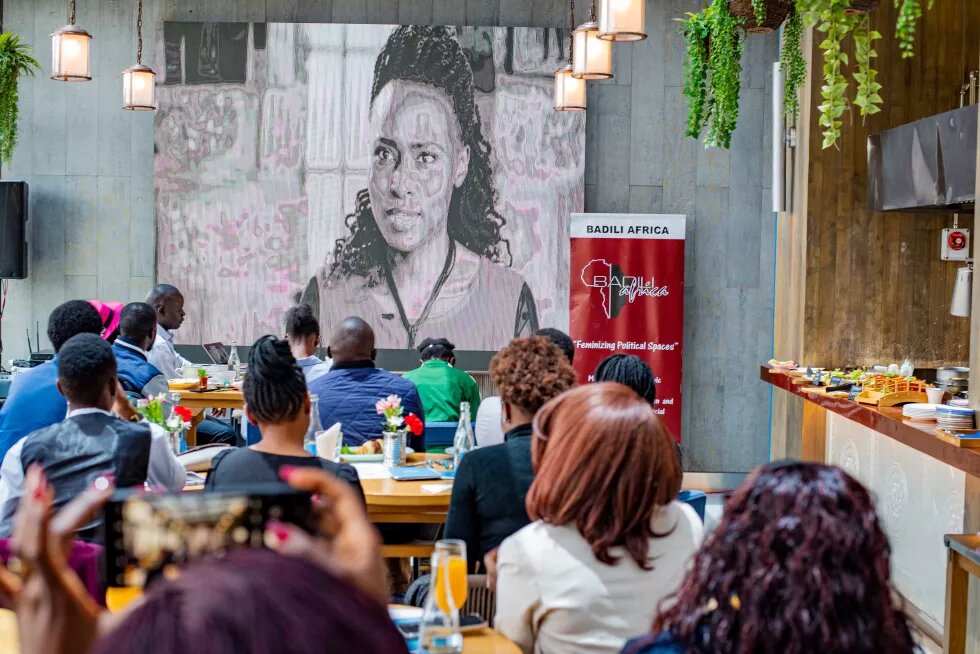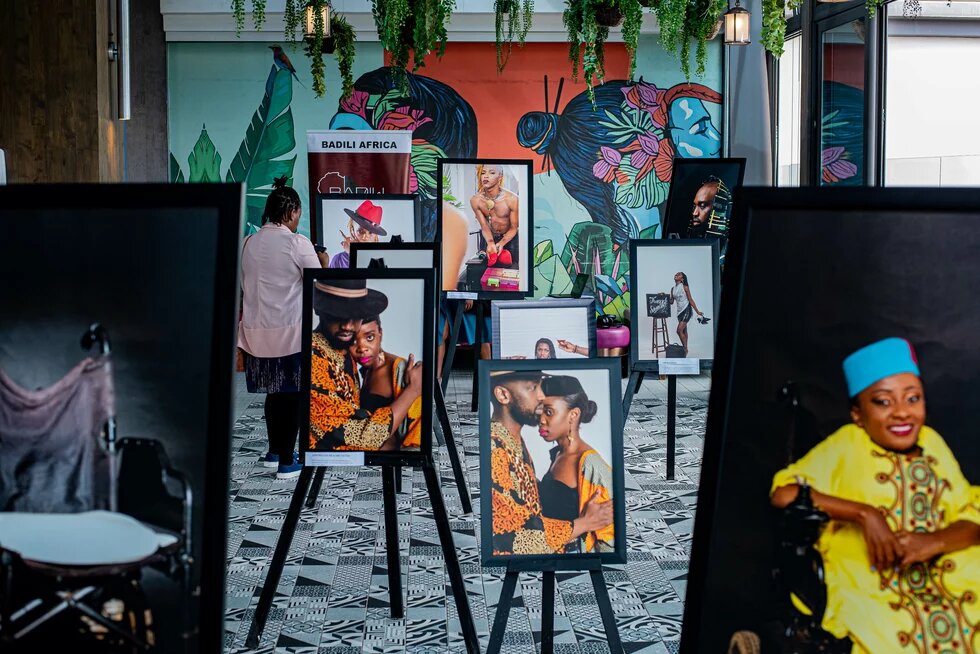
More often than not, sexual and gender based violence (SGBV) is perceived to only happen in homes, communities and places of work. One would never imagine that SGBV also occurs in institutions of higher learning.

More often than not, sexual and gender based violence (SGBV) is perceived to only happen in homes, communities and places of work. One would never imagine that SGBV also occurs in institutions of higher learning. Where the safety of students is imagined to be a given responsibility of the institutions themselves. Universities are increasingly now becoming breeding grounds for perpetuators of SGBV, preying especially on young women. Worse still for young women seeking student leadership.
Badili Africa, in partnership with the Heinrich Boll Foundation, in recent months , has been working on a project whose core objective is to promote zero tolerance on acts of sexual and gender based violence (SGBV) in higher learning institutions, specifically, public run universities. The collaboration aimed to utilize innovative ideas and creations to address gender based violence in universities especially those incidences instigated during student elections. A core approach of the initiative was to work with students, and university administration to ensure proper reporting of cases and for them to take action against perpetuators of SGBV within the public universities. As a result of the collaboration, the project has created platforms through which various stakeholders from university administration, student leaders, and students in general have been able to interact and explore possible solutions to reducing the incidences of violence within the schools.
In hosting various capacity building workshops with the young women actively engaged in campus politics, unveiled various cases that have been swept under the rug. It also brought to light a myriad of challenges faced by female students when vying for office and/or leadership positions at tertiary level. For instance, for young women, a third of the resources raised for campaign effort were channeled into paid security for themselves. Unlike their male counterparts who did not necessarily have to prioritize security as part of their campaign budgets. Information gathered in the duration of the project revealed a direct correlation between sexual, gender-based violence, and mental health issues for the young women active in student leadership and politics. Sexual abuse and violence topped the list as one of the key deterrents to young women participating actively in University leadership and political processes. The normalization of sexual and gender based violence discouraged female student with leadership ambitions from pursuing them, with the female leaders already occupying leadership positions not desiring to seek re-election or pursue any leadership positions outside the universities.
A documentary dubbed “The Silenced Young Woman” launched and premiered on 26 October 2022. The documentary currently available on both hbs and Badili Africa respective YouTube channels is a summary of actual SGBV cases and experiences of young women who dared to run for student leadership positions across several public universities in Kenya. Most disturbing is that no experiences were unique to a specific university. The nature of violence cuts across the region regardless of geographical location, area of study, political position and social status.
The documentary elicits various feelings to the viewer. Nostalgia, for those who were able to experience student politics when they themselves were students, anger at the level of injustice for those who come forward, sadness and disappointment that young women in learning institutions still experience the harsh reality of gender based violence in pursuit of leadership positions. The feeling is even worse for the few young women who dared to dream and actively participated in politics. Their desire to contribute to the welfare of students in serving as student leaders left them exposed to experiencing various forms of SGBV.
As much as most were not deterred by the abuses they faced, many opted to drop out of the race altogether and shelved their political dreams, as the abuse worsened and took a toll on them. The survivors of the abuses often faced deep-rooted stigma that affected their day-to-day lives.
The young women who narrated some of the ordeals they went through stated some of the perpetrators were people in positions of power and influence. They were known to the public and the school administration and yet no follow ups were made even for those who reported to the authorities. Some survivors opted not to pursue the matter further due to various reasons such as trauma from the incidences, embarrassment, shame and even grievous mental harm as a result of the ordeal(s).
The photographs displayed during the exhibition utilized make up as a tool used to mask different forms of violence. The images portrayed showed young women being sexualized even when running for office, some images displayed solicitation of sexual favors by people who had influence over the campaigns and elections, and yet some indicated the inequities faced by gender minority groups when vying for leadership positions. Discrimination towards young women and disabled persons was one of the areas that could not be ignored in telling these stories.
In most Africa countries, coming forward and publicly denouncing crimes such as gender-based violence is a true act of courage, especial to women. Whether the act took place at a personal level, at home, in the community or at an institutional level, speaking out is never easy. Feelings of guilt and shame fueled by many widespread misconceptions often discourage victims from talking about their experiences.
“The Silenced Young Woman” a project as a whole was to bring to light awareness on what is happening within the university leadership spaces and advance cases of SGBV as a priority especially in the context of student politics at tertiary level. The project also emphasizes on the risk of these behaviors being escalated into national politics as student politics is mirrored on how Kenya as a country runs its elections. In highlighting these incidences, it is hoped that the call for change does not begin and end at university level. That the negative behavior that mars student politics is not perpetuated further into national politics.
Gender minorities need to be given equal and fair opportunities to run for political positions without fears of being targeted as a result of their age, gender or sexual orientation, their religious or ethnic background or the physical disabilities.
This article was written by Basil Oketch and Faiba Kombo, from Badili African and hbs Nairobi respectively.

